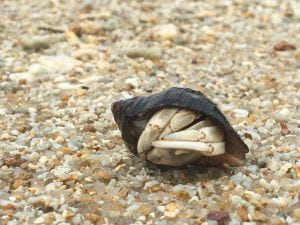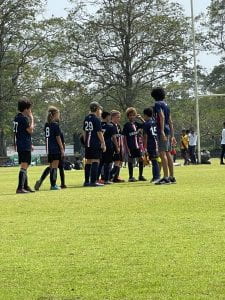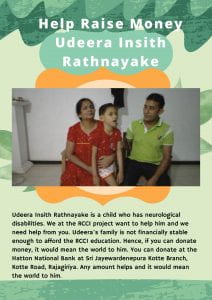As we move closer towards the final exams, my time as an DP student is nearing its end. This reflection will look back upon my diverse range of CAS experiences throughout the 18 months of CAS.
- Identify your own strengths and develop areas for personal growth
Sports writing is something that I started to do more regularly towards the end of MYP 5, during the COVID lockdowns. When we were again forced into online school in DP1, I resumed writing. I wanted to take my writing to the next level in my role with Sideline Sources, writing on relevant and trendier topics which get the most clicks. I also grew as a writer by understanding the need to asses my audience. This can be seen through the Roar Australia website, with a high cricket reader base, which I focused on heavily.
This outcome can also be seen through personal fitness endeavors. I identified specific areas to focus on at different times based on my needs. For example, starting long distance running before TISSL football was incredibly useful for my stamina and I did not gas out in any of the games.
2. Demonstrate that challenges have been undertaken, developing new skills in the process
While activity and service were CAS areas that I was extremely comfortable with, creativity was something which I knew would be knew and challenging for me. The first thing that I decided to try was photography at the beach, given my experience in photography from my 2020 Week Without Walls trip to the Sri Lankan highlands. I was able to learn from more experienced photographers in terms of how to use ideal settings depending on what type of picture I am trying to take. I was able to understand how to use the optimal settings depending on the type of picture I was taking.

Another creative activity which pushed me out of my comfort zone was ISTA. While it was not the traditional experience, being online, the conference still was a new challenge for me, particularly the individual practical work. I gained skills such as Bunraku puppetry (Japanese), which became useful later on.
3. Demonstrate how to initiate and plan a CAS experience
Planning could be seen through my CAS project, coaching Primary Football. I had to treat the entire process as planning, leading up to the tournament. I was thrown various curveballs including players pulling out last minute, in addition to new players turning up late. I also had to deal with the intriguing news that it was a 9 a side tournament, which meant I had to create very unique tactics which suited the attacking style I wanted to play, while ensuring that we did not concede. The culmination was a very last minute plan which saw players out of position, but our team still managing third place in the tournament, while the under 12s won.

Caption goes here
4. Show commitment to and perseverance in CAS experiences
The CAS experience I have been committed to my entire time at OSC has been sports. Even with COVID ensuring there would be no SAISAs, I was appointed captain of the Volleyball and Football teams for several friendly and competitive matches. We were thrown many challenges including player unavailability, for nearly every match for various reasons. This unfortunately led to a few undermanned teams performing below par. However a highlight was beating Elizabeth Moir 5-2, a game where we played very well in a new 3-4-3 system, where I played in central midfield alongside Elliott. Additionally, we comfortably won two volleyball games against a team which had lost to in previous years. As someone who has played sports at OSC for many years now, I have always been committed to improving the team and I have been extremely proud of the progress overall. It is really disappointing that there was no SAISA this year, as I felt our volleyball and football team peaked this year and had an excellent chance of winning.
5. Demonstrate the skills and recognize the benefits of working collaboratively
This learning outcome can be seen through my experience in SGA EXCO during DP1. It was an extremely challenging year to be in SGA due to the pandemic, but we were all able to arrange spirit weeks and a concert. We went into lockdown just a week before the concert which was unfortunate, as it took a lot of work to organize it during the pandemic.
6. Demonstrate engagement with issues of global significance
Joining the RCCI service group during the pandemic was quite a challenge due to not being able to interact with the kids. However, it was still very important to create opportunities for them to engage in activities. For example, we arranged a virtual art workshop for them, where we arranged for supply deliveries so they could draw and paint. For a group of people with communication disabilities, it is easy to understand how difficult a global pandemic would have been, limiting what little interaction they anyway get. That is why I found it extremely important that we helped out on a few occasions. Additionally, we started a fundraiser for a boy with neurological disabilities, whos family was unable to provide him with the care that he needed due to affordability.

Another issue of global significance that I engaged with was the environment. Specifically, attending an event protesting the construction of a highway which would be detrimental to the Talangama wetlands. Around a year later we were greeted with excellent news that the plans had been temporarily scrapped, highlighting the power of mass protest in creating change.
7. Ethics: to be updated ASAP
